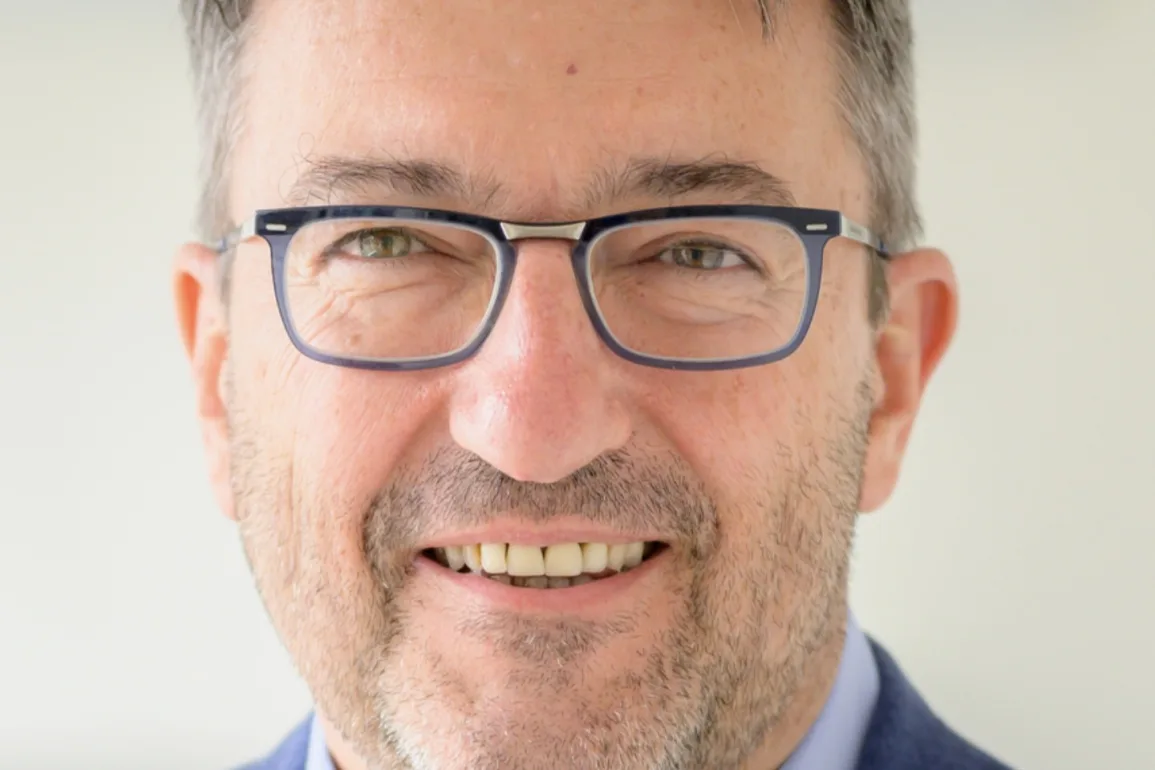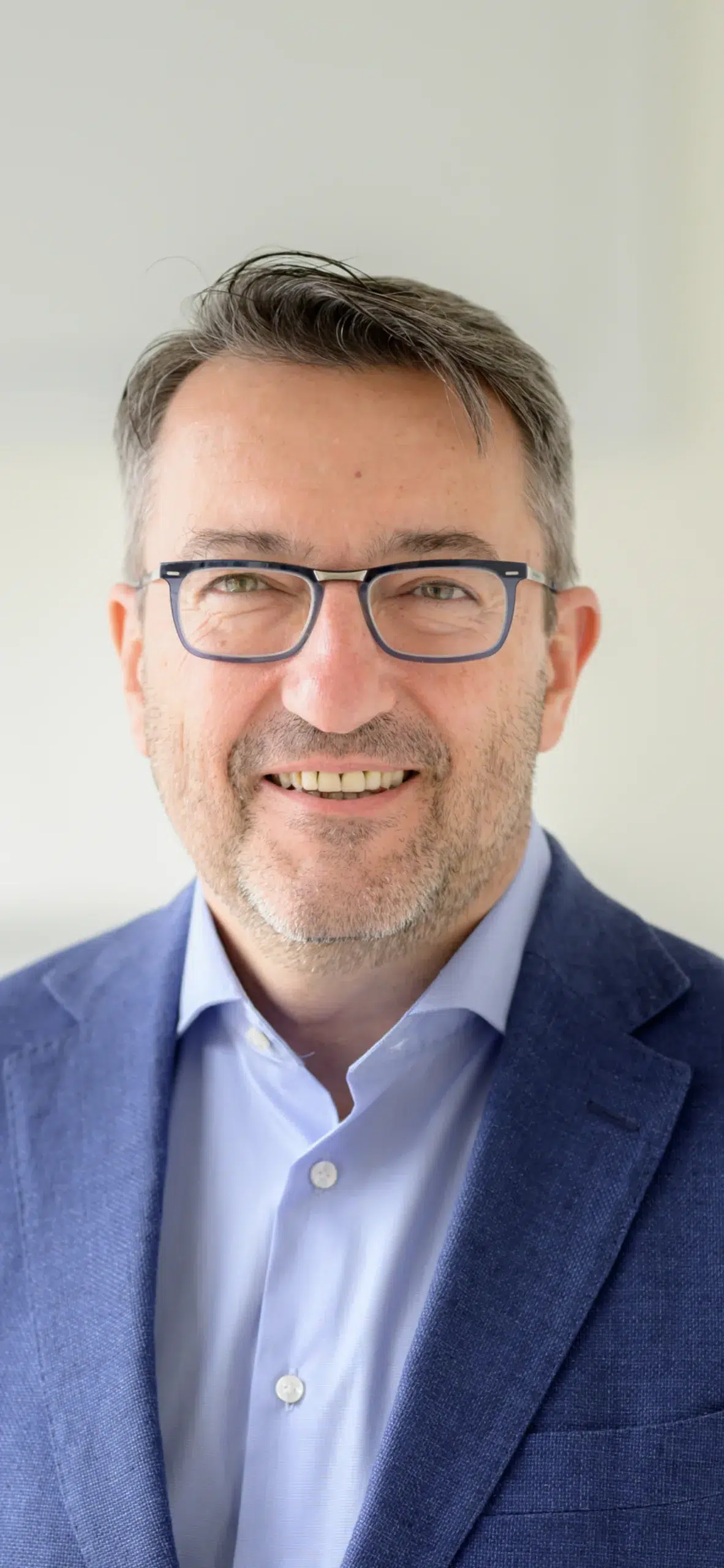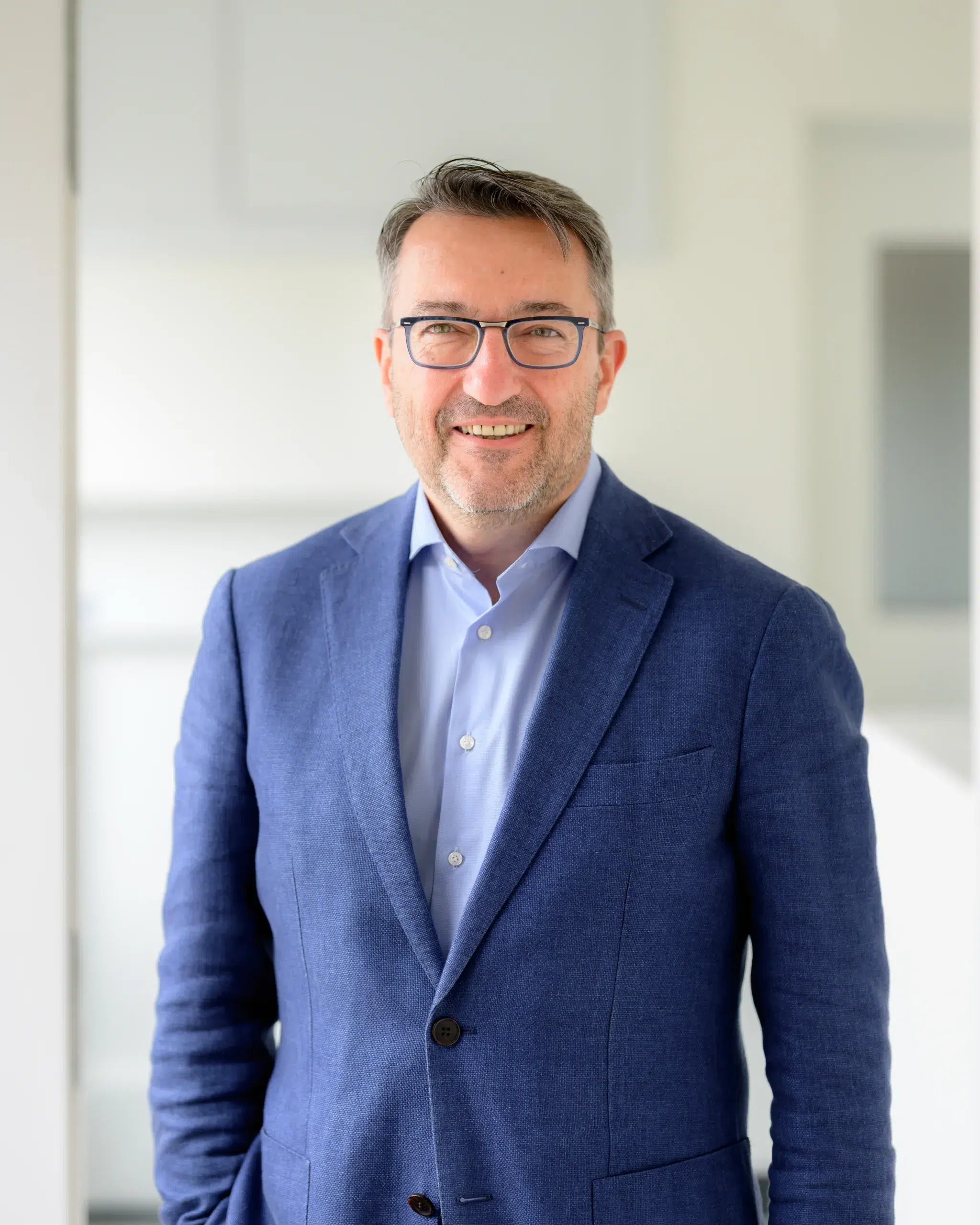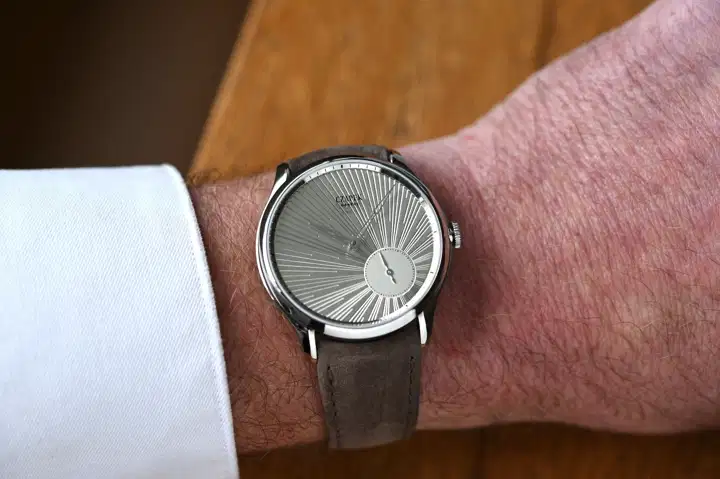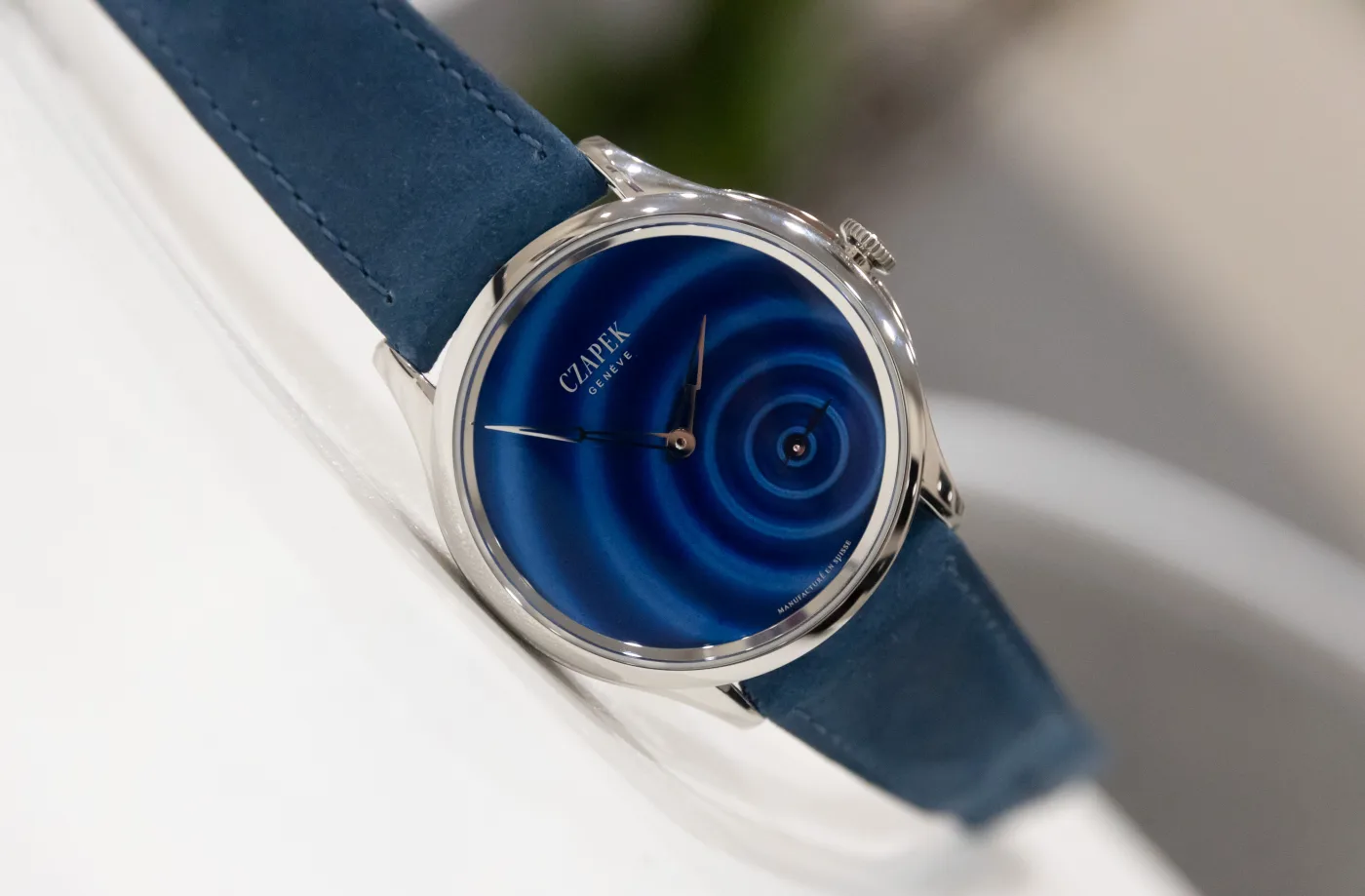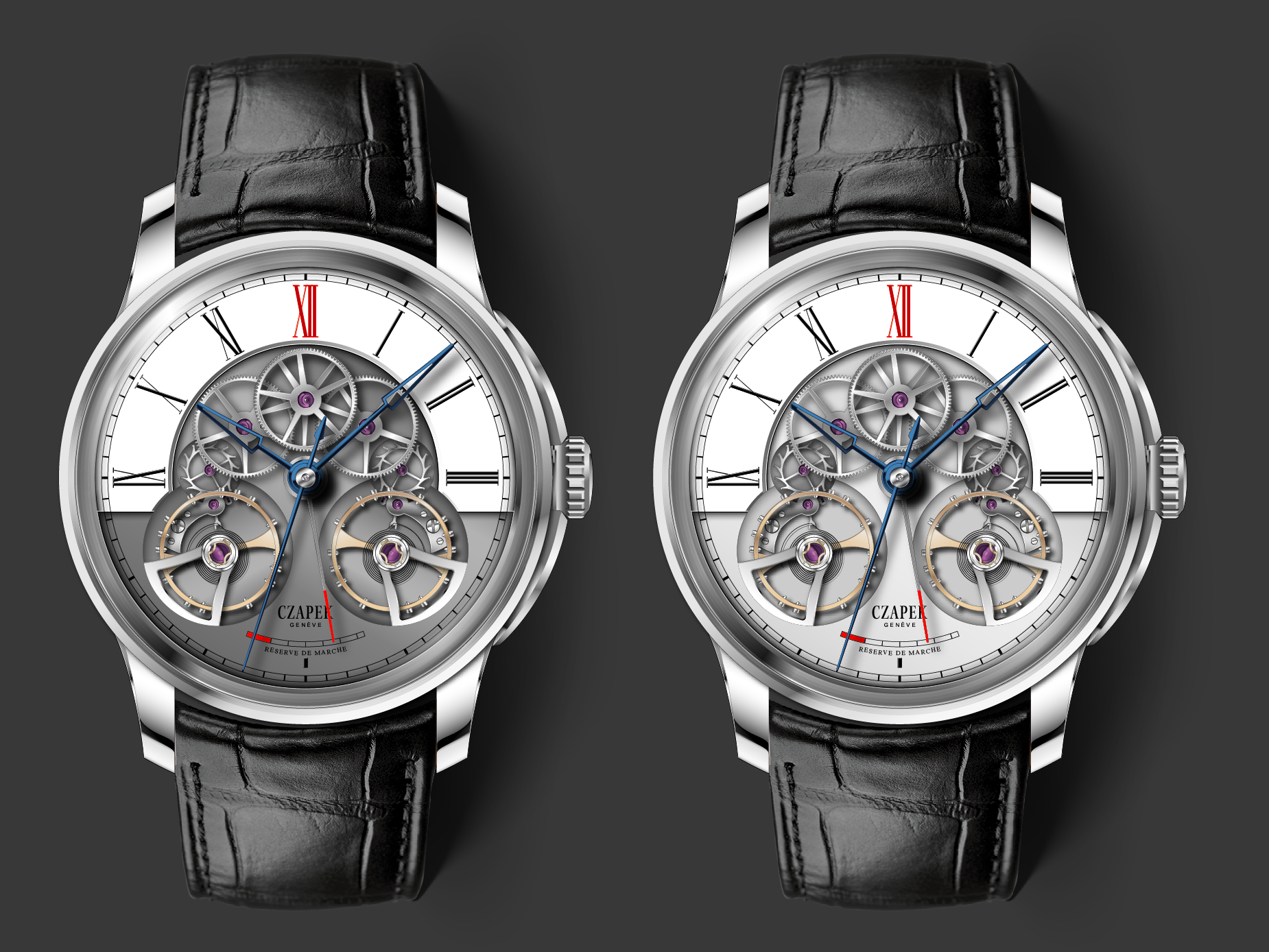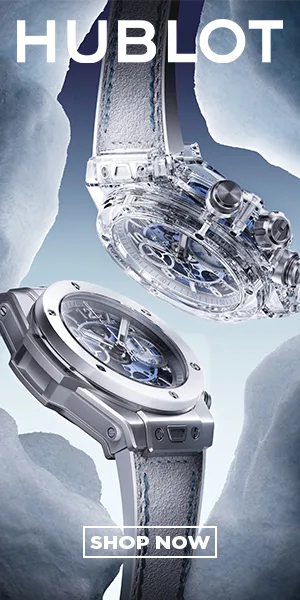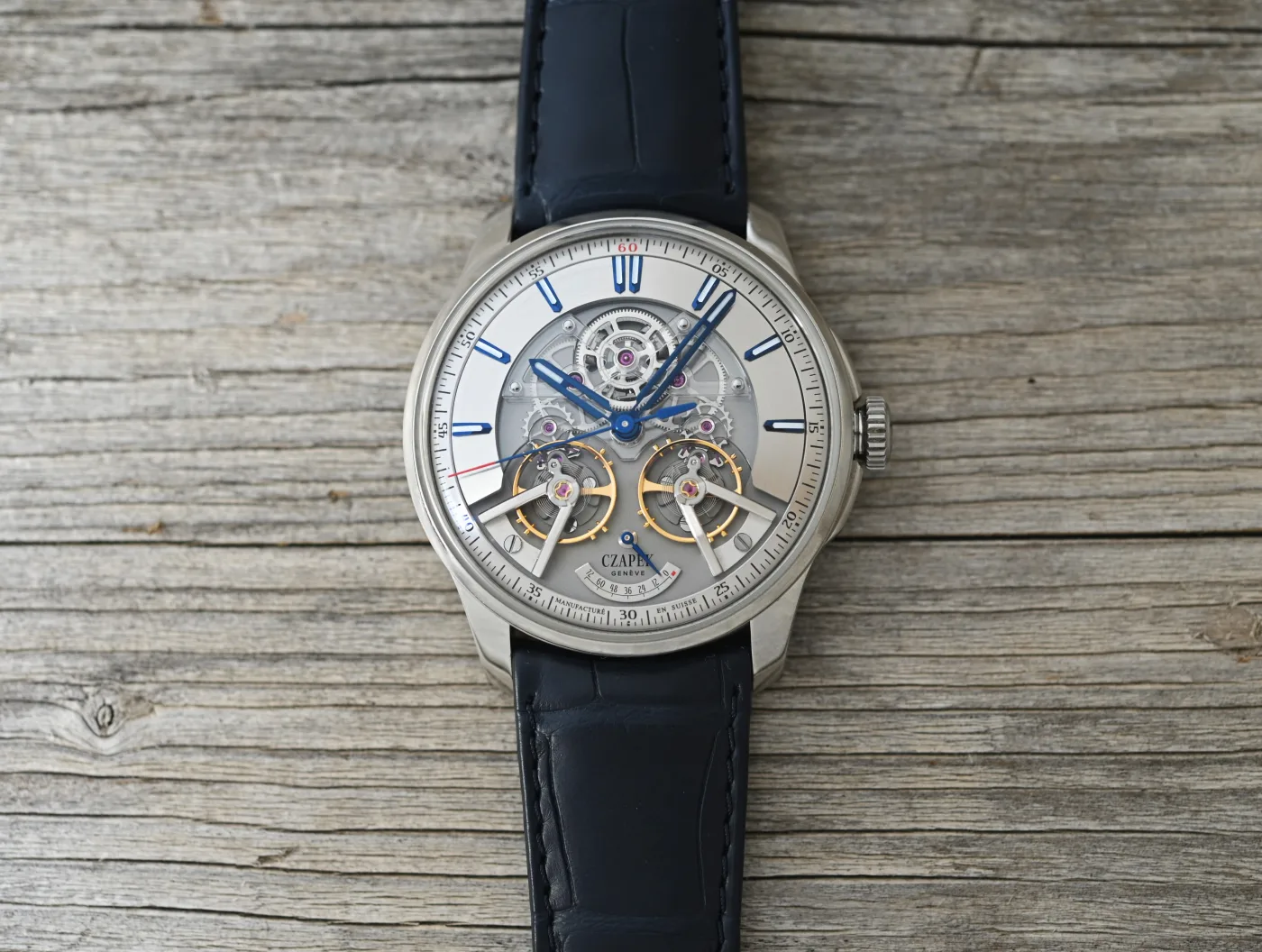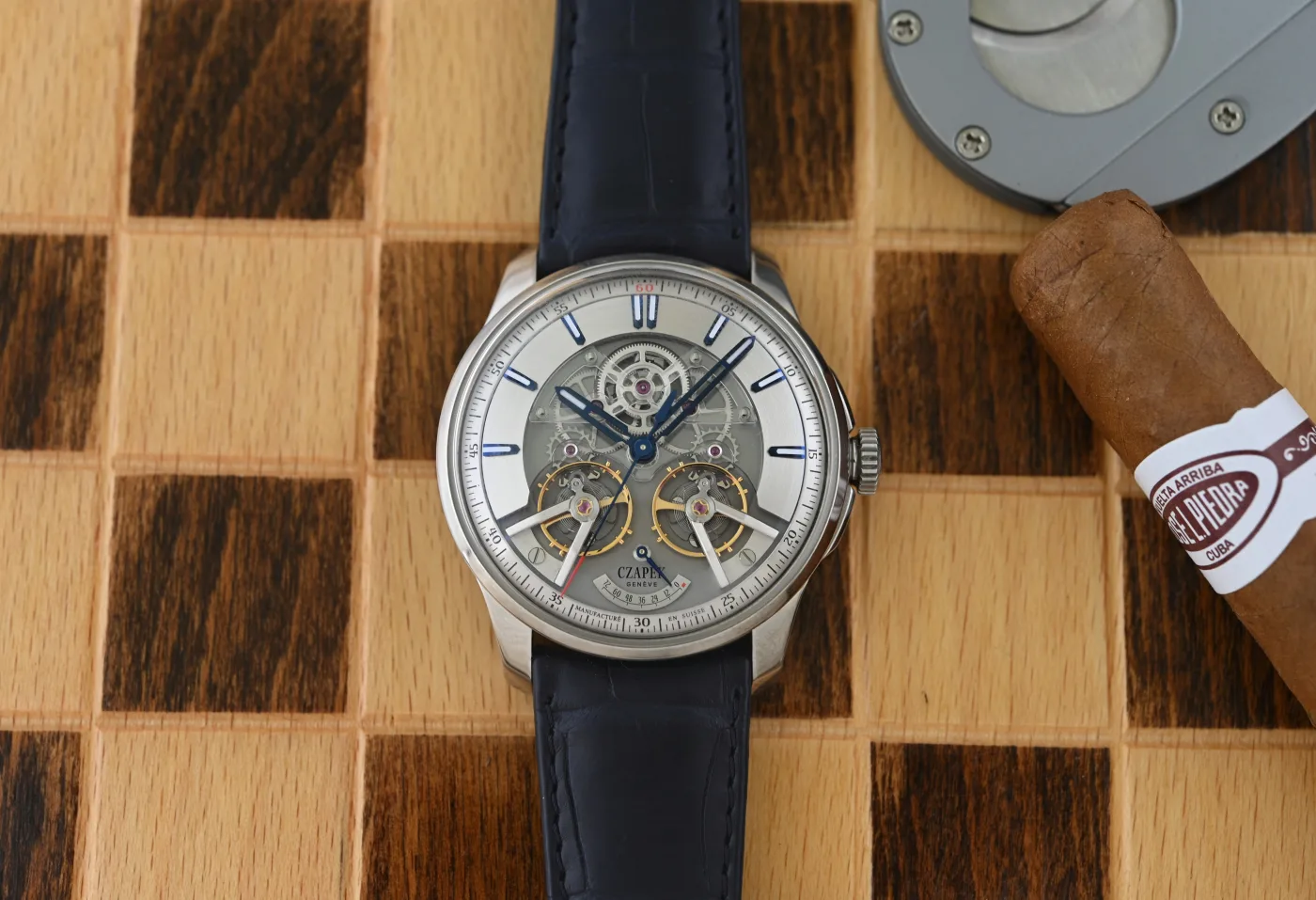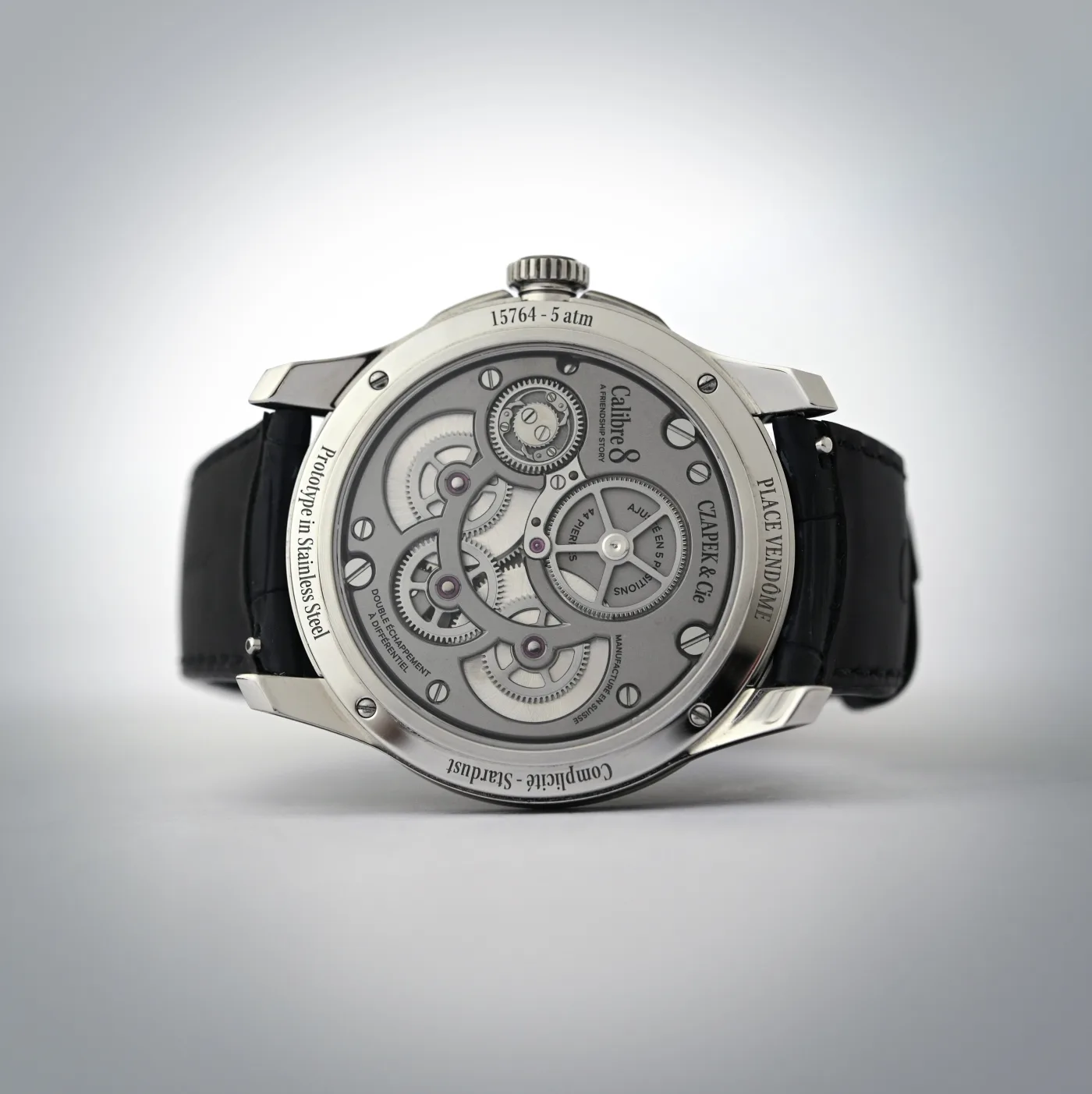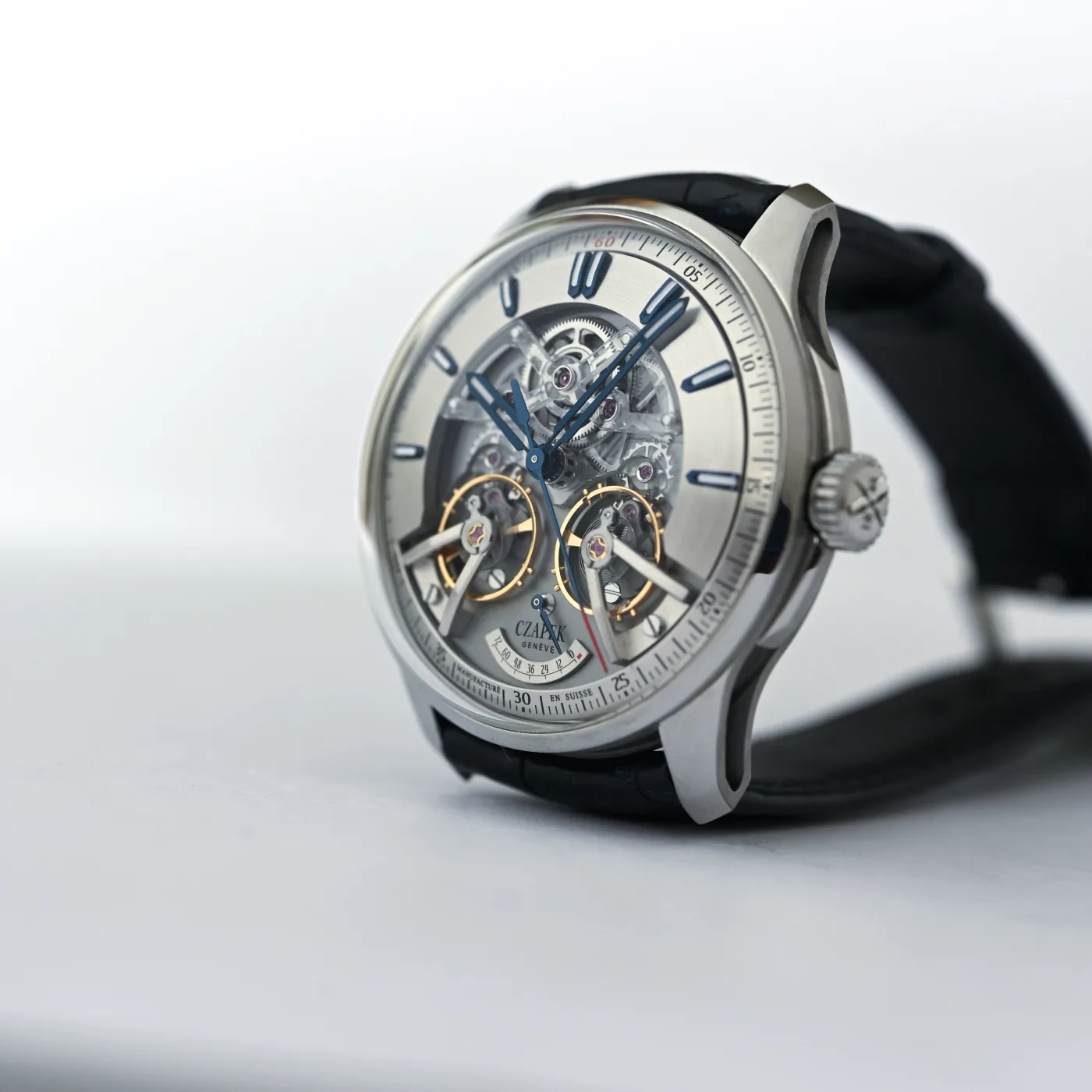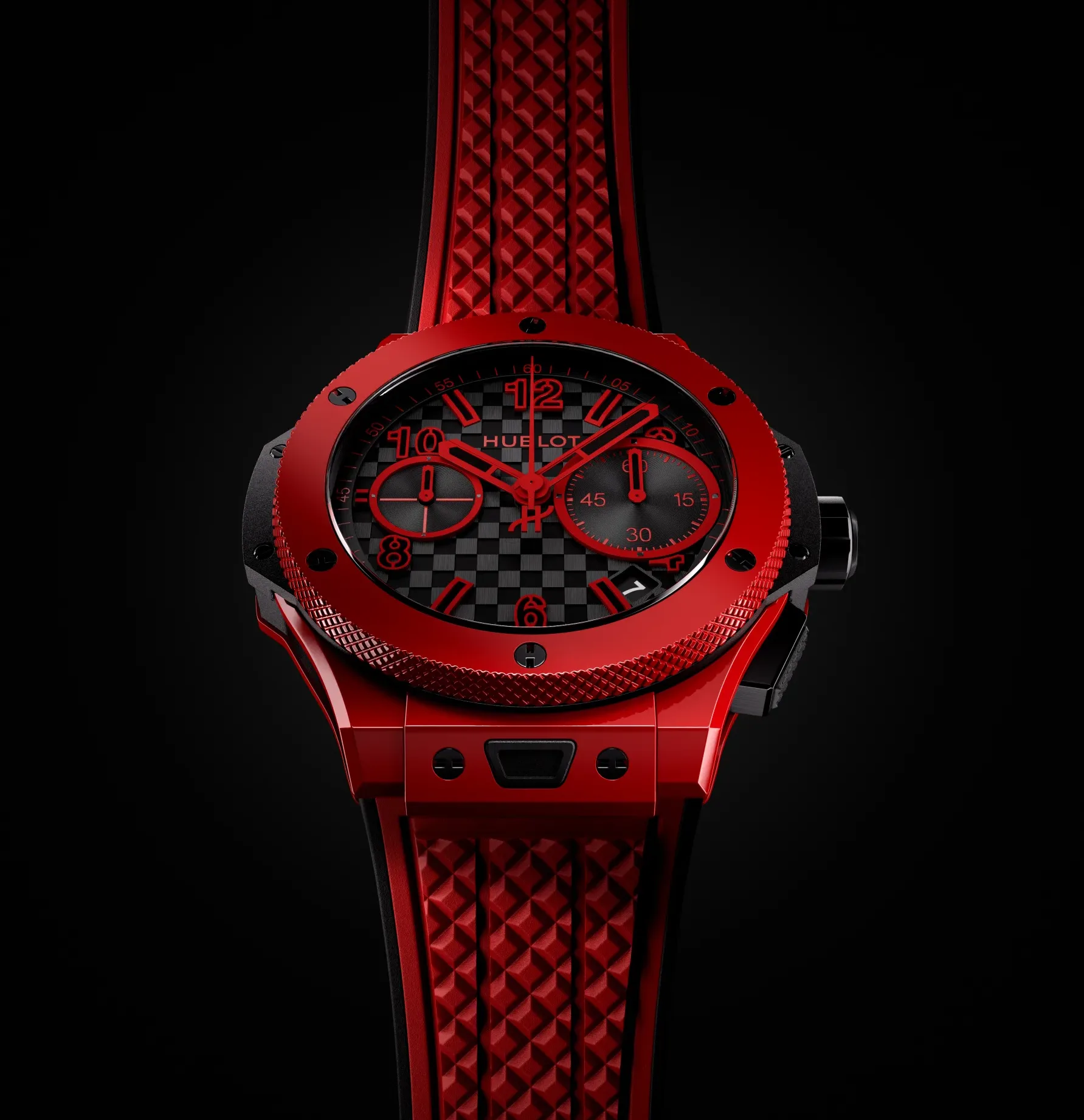BY HARLAN CHAPMAN-GREEN
As hinted, I got to take some time to speak with Xavier de Roquemaurel, the CEO of Czapek Genève. We spoke about his past, how he became part of the team reviving the Czapek name, and we even spoke about chocolate bars, of all things.
This article is actually made of two interviews I had with Mr. de Roquemaurel, one at Watches & Wonders Geneva in April and one since the launch of the new Place Vendôme Complicité Stardust watch. I’ve done my best to put them together without ruining any flows.
Let’s start with you, what drew you to watches before Czapek?
I love people and products, and I’ve dedicated my work to making products for people. I started at the bottom of the ladder by working with Mars Inc., then moved on to the makeup industry with L’Oréal, Maybelline, and so forth. Then, I moved into perfume and cosmetics, which was very interesting.
I eventually went back to school and then moved to the luxury industry and became the product manager of Loewe, working in the men’s section. I fell in love with the role of product manager, and I then joined the high-end fashion company Ermenegildo Zegna, where I was the head of marketing in Europe. At the time, I was based in Switzerland and felt that I should look at something else; I loved watches and felt that this was a good direction. I joined Ebel for their fourth relaunch, it was a way for me to get my foot in the door of the watch world. I quickly realised that I knew nothing and needed to work hard to understand it all, and then I lost my job!
After losing my job, I looked for a new adventure which ended up being Czapek. I was doing a lot of networking and looking for projects, and Czapek was a project which needed a partner. So it was Harry Guhl and me, and I brought in a third partner (Sébstien Follonier) who was a watchmaker. So, what brought me to watches was the poetry of it all, and I love the technical and aesthetic difficulty of making watches. Combining those and then adding in the customer relations is really what drew me to this.
Do you still like Mars bars?
Ah! No, not anymore. I don’t know when I last had one, but it’s funny to start from there. I learned that it’s very difficult to move from one industry to another. I wouldn’t advise it. It’s a huge change in your mentality, as you have to start from the beginning each time. But I learned so much in each experience.
At Mars, I learned to effectively plan something on only one page of paper, which is how they worked. At L’Oréal, I learned how you can make beauty your best weapon. I also learned that things in business aren’t always logical, but they run on emotions. Working with emotions is a challenge, but it’s what I learned. At Loewe, I really learned how to manage products and how to drive designers and push them to go beyond their limits and create a luxury experience for the customer. And then, at Ermenegildo Zegna, I learned how to re-engineer systems to deliver something unique in four weeks. In the beginning, we were doing customised watches (at Ermenegildo Zegna) and delivering them within four weeks. We paid attention to how we communicated as teams and how much the customers liked our work. Picking up all this knowledge is what’s helped me become the CEO of Czapek.
If I’m honest, it’s also a mindset. If ever people say one day that I’ve been a CEO, I would say that it’s probably because I’ve never been a CEO before and I approached it all as an amateur trying to learn all the ways. From there, running a company is like sailing a boat. The boat always moves around; there’s the wind and the current and so on; you’re always changing things slightly and adapting what you do to make it go. This is what I think is the real job of the CEO. You’re never right, and you’re never wrong; you’re always correcting, but the speed at which you correct things is what makes you successful. You have to work with conviction but without being fully certain of everything as doubts can help you make things happen in the right way.
You’ve advised people not to change industry but you’ve done that quite successfully. What would you say to someone wanting to follow in your footsteps?
I’d say do it if you have the energy and the resilience as that’s the most important. If you want to create your own company like my dream was back in the day, you must be capable of understanding how much you need to learn before you start. I think that in our case it was good for us as business requires people with character and interest in the business area. Ideally, if you want to start a business and you’re dead set on it you should start your business as early as possible.
On the other hand, if you are interested in products that require specific knowledge, then you should consider changing industries a few times to learn as much as possible. However, this can be expensive, and I always felt like an outsider. You also don’t get to network in that specific area as much.
Of course. Czapek has a great history from centuries ago, do you enjoy history from that time period in particular?
No, I enjoy history in general as the past helps us understand the present, and we can use it to help us predict the future. For me, the past is the key to our understanding of what’s around us, it’s clear that Czapek’s history is critical to us today. We’ve hired historians who have worked with other watch brands and we used them to help us discover our history and clarify what really happened in the past and what didn’t. I would call this approach quite scientific, which is how we operate today.
Have you made any more discoveries on what happened between when the Czapek name disappeared and now?
Yes, we have found some things, but we decided we want to get the whole history together and release it as one piece. The danger is that we get bits of information and release it as incomplete material, which means that people begin to infer what they think happened which may or may not be correct.
I understand you there; for example, I studied classical Greek history at school, and the difficulty with a lot of that is that the things we have written down were done so by people who lived decades or even centuries after the event happened by someone who heard stories of the thing. We have no idea how accurate it was but we just had to hope for the best.
Yes, the Trojan War is a good example of that. We know it happened, but it probably didn’t happen the way we think it did.
Indeed. Does Czapek’s unique history distinguish it from the other independent watchmakers?
Of course. History and story tend to be merged together. I think the way we revived Czapek is a story of David versus Goliath. Most people tend to hide away when the fight comes until they see that David isn’t losing, and then they all want to work with David. But we know that humans are like that, but it’s what we do with Czapek’s history that’s really important.
I think that whenever we create things today, we don’t need to check our history records; we belong to one story now. If we make a mistake and do something that isn’t very much like Czapek people would tell us very quickly. We don’t have to look at the history books so much any more as we try to follow Czapek’s personal style with our designs. Is that what Fransiczek Czapek himself would do? I think so, even though he didn’t do anything like what we do now himself.
Which of the Promenade models released during Watches & Wonders 2024 was your favourite?
You know, I’m really drawn to the Promenade Guilloché Soleil Ivoire model. I think this champagne/ivory colour is the next focus perhaps. Everybody at the show was watching us I feel, because they knew that we initiate trends with our designs. We’re very free-minded and sensitive to what’s happening around us, and when we release new models we treat it much like a fashion show.
You captured that look, especially the dial of the Promenade Guilloché Soleil Ivoire. When you move the watch around, it really catches the light—it’s like a camera flashes.
Exactly! That was the aim of those models, and when it came out, it was our aim to present it as a key part of a fashion show. And we choose the colours of the watches with this in mind too. Of course, everyone looks at the Promenade Guilloché Goutte d’Eau which is capturing the most attention here. I love it, too, especially the mesmerising effect of depth that you can see in the dial. It plays with your brain! But, I think all of the models have a level of elegance and beauty that’s rare and special.
What was the inspiration behind the new Place Vendôme Complicité Stardust?
Prototype mock ups of the Place Vendôme
Well, our first watch was the Quai de Bergues, modelled after a watch made in the 1850s by Czapek. One of Czapek’s actual watches came up in an auction, and we had the opportunity to buy it. This was the inspiration for the model. We wanted to make a watch that covers from the past to the present, which is the Quai de Bergues, and the watch covering the present to the future is the Place Vendôme.
After the different Place Vendôme models we’d made at the time, we thought it would be really cool to have a model with a double escapement in place of the two subdials on the other models. In the beginning, we knew of Philippe Dufour’s Duality as having two escapements, but there were other watch models with tourbillons and so on.
For a while, having a watch with two escapements was a theoretical exercise for us, although there were three other brands making watches with two escapements and a differential, we couldn’t. We wanted to make our watch different by having the escapements and the differential gear visible on the dial side, I’ve got some of the original designs that I’ll send to you. The issue we had was that no one else was capable of making a watch like this.
So, how did you meet Bernhard Lederer?
Bernhard’s daughter was in the same classes as my youngest son, which is how we met—they’re still in the same classes! They suggested that Bernhard and I meet up, and we did. Bernhard wanted some advice on the business side of things, and I thought it would be good to have a reciprocal arrangement. So, he advises us on the horological side, and I advise him on the business and branding side.
Eventually, Bernhard suggested that we should work together on a watch; I thought it was a good idea, and it occurred to me that we had this watch design that nobody was able to make for us. I showed Bernhard the designs, and he looked at them without saying anything for a few minutes, and then he said that he could do it. We started working together and found things difficult with the engineering, for example, the sapphire bridge on the dial was really a pain compared to more traditional materials. We had to do a lot of fine-tuning, but in the end, we got there.
It’s quite a family thing then isn’t it?
Yeah, it’s all about collaboration.
Do you think we’re likely to see a watch from Bernhard Lederer that’s got your inspirations on it?
I don’t want to ruin anything for him on that part, so you’d best set up a meeting with him. I will say that he’s got a roadmap in mind and that, for him, the techniques drive the designs. Perhaps, though, this isn’t the last Czapek watch with Bernhard’s influences, we’ll see.
Okay, I think I can set up a meeting sometime! Following on from that, are there any other popular independent watchmakers you work with, or do your family members know somehow?
Ha! I don’t know yet. We want to do as much as we possibly can in-house rather than outsource things to other people. I’m sure there will be more collaborations somewhere down the line, though, as it’s a great way to work. I have an idea for something, but we’re many years off from anything new at the moment.
On a similar note to the last question, what’s the next complication or combination of complications you’d like to work on?
Well, Czapek is a journey for our clients and for us. We like to take things that we’ve done before and push them to the next level. So, this could be reworking the Quai de Bergues with a constant force system. That would be something nice.
We’ve also got a new calibre coming, which we’ll use for our anniversary watch next year. The calibre comes with a new invention, which we think could be very useful when combined with a perpetual calendar. But that combination is also years off. We have even crazier ideas, but they’re also something to look to the future for, too.
When you design watches for the future, how do you ensure that they contain that special Czapek DNA?
For us, it’s a process. In the beginning, we worked on the brand’s core elements and aesthetics and made it clear that it’s a Czapek watch. From there, it’s a quest for beauty. That can be done with extravagance, but that’s not us. It can be done in a classical way, too, but that’s not necessarily us either. We work and work on the designs until we get something that gets under your skin in a surprising way, it has to be surprising in that way. Because the beauty is surprising, it makes you love the watch! So, we’re always looking for that element that makes us different from all the other watchmakers.
We understood this when we reviewed the watches Czapek made; there was always an element that didn’t seem like it was correct, but it actually was. For example, the Roman Numerals used on some of the watches look like they shouldn’t work, but they do. Our customers know that we do this, and so they want us to surprise them every time. I tell you, as a CEO, it makes my job more difficult, as everyone wants us to surprise them all the time.
I’ll bet! On the new Place Vendôme Complicité Stardust, what’s your favourite tiny detail? It might be a finish or a colour, for example.
I would say the indices on the three-quarter dial ring. They have a superb effect that you don’t immediately see at first, but your subconscious brain sees it and says that there are details there—but you don’t know why! When you go in for a closer look, you end up seeing it. It’s a good question. I don’t think I’ve been asked that one before, but it’s good because I wasn’t expecting it, so I didn’t have any time to overthink it.
As you’re not limited by the designs Czapek himself made, what do you think will be your biggest challenge in the next ten years?
I think my death might well be the biggest challenge.
That’s one I’ve not heard before!
Yeah, but lots of people relate me to the brand. I’m really trying to build a team who work behind the scenes, but it seems that people try to push me forwards all the time. Hopefully, I’m not dying in the next five to ten years. Wherever I was working at the time in the past, I always found my replacement, and I have an idea of someone who will be able to take of Czapek, but it’s up to the board to decide.
The next biggest challenge will be [the] evolution [of Czapek] over time without losing the brand’s vision. Success can drive you nuts and make you do stupid things, so you have to stick to your values and beliefs. It always feels like there’s a new generation of people who have never been into luxury before, but today, they come into it because they feel it’s meaningful.
In the past, the luxury scene has been about showing off and special effects, but these days, it’s more about purpose, which I think is quite profound. The people who are coming into the luxury world with this mindset are the ones who we need to look after. Of course, it’s important for a company to be profitable, but it also needs to be relatable and that means a strong relationship between the customer and the brand, the brand’s product and the people who work at the company.
I definitely agree that when it comes to the younger generations, a lot of people are looking for meaning. It seems like a lot of people are running into issues because there isn’t the same level of authenticity in their lives that their parents and grandparents had.
Authenticity is a great word to use. If you don’t have that then you really are in trouble these days. And if we have too many staff on then I can’t do my job of speaking to everyone and understanding their personal problems. If you want people to be committed, then I think you need to be personable with them; it gives them meaning and means they end up loving their job. I find it much easier to do it this way with a small company than a larger one; I know some large companies have been able to achieve that, but it’s very few, and I have no idea how they did it. I prefer things to stay small.
Well, it’s been an absolute pleasure, thank you so much for speaking with me.
Thank you!
Let us know who you’d like to see be interviewed next!

